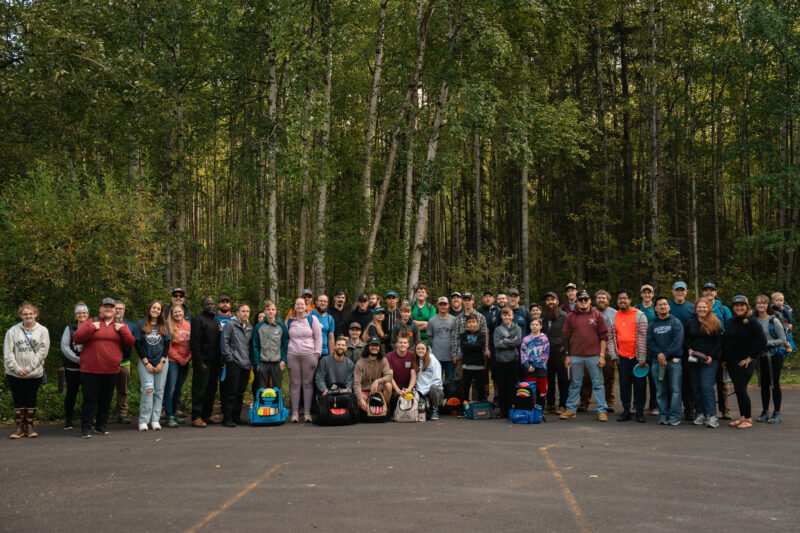Youth For Christ is committed to reaching young people with God’s love by walking alongside teens through pivotal moments in their lives. This mission compels YFC to seek out those on the fringe of society who are often overlooked and underserved.
YFC Alaska chapter has the distinction of ministering to students in an area called the most diverse in America.
Christopher Gatch, Executive Director of YFC Alaska, said “We have some of the most ethnically diverse neighborhoods in the country, which include Pacific Islanders, Sudanese, Egyptians, Russian, Ukrainian, and Arabs to name a few.”
Unique Challenges For A Unique Climate
Approximately 110,000 teens between the ages of 11 and 19 live in Alaska, a state where the climate poses unique challenges in ministering to youth there.
Gatch noted, “Due to our extreme weather, we can’t do a lot of activities outside since it’s often in the negatives. A lot of our ministry is indoors, and that’s where our Campus Life ministry really shines. In the dead of winter, it’s pitch-black outside. The kids go to school in the dark and come home in the dark. We come together and provide a safe place to play games, share the Gospel and experience community.”
In a state dictated by a tough climate, many teens struggle with isolation and depression. In fact, Alaska’s suicide rate remains among the highest in the country at around 30 deaths per 100,000 people, while suicide is the leading cause of death among Alaskan youth over the age of 15.
Gatch said, “Each week we go to a behavioral health hospital to talk to the students and hear their stories. Every single teen there has either attempted suicide or injured someone else. We go every week to pray with them, hand out Bibles and share the Gospel.”
A Mix For A Perfect Storm
Gatch notes that many older students are struggling to connect relationally, resulting from a perfect storm of COVID-era distance learning, dark days, and a lack of parental engagement.
Gatch said, “Some students lack relational skills because they were kept in isolation during key formative years. They did their schoolwork online and didn’t actually interact with anyone. And many parents work multiple jobs, so the student leaves an empty house, goes to school and comes home to an empty house. Sometimes they don’t see a parent for several days, due to late shifts.”
Gatch continued, “So we’re seeing an isolationist attitude. They don’t know how to problem-solve in relationships, so when they experience conflict, they will just cut themselves off from that person. But you can only cut off so many people. And when their world shrinks, sometimes to just themselves, we may start to see self-harm or even attempts at suicide.”
Deep Desire And Need For The Gospel
Compounding these factors, many students are grappling with traumatic moments.
Gatch shared, “A lot of these students suffer from trauma, whether it’s something they’ve experienced or something they’ve done. So, walking with them through what the gospel means, and knowing what Jesus desires to see from us, takes a bit more effort than it would talking to your normal church-going student.”
Yet no matter their background, and no matter their experience, every student shares one common need.
Gatch said, “What unites all of these teens from different backgrounds and cultures is the deep desire to hear the gospel. What we can do is share what we’ve experienced ourselves, and how Jesus has healed us and made us healthy emotionally. We bring vulnerability, honesty and transparency. We let the student know. ‘Hey, we’re here for an hour today. We’ll be back next week for an hour as well.’ And we’re going to bring the same transparency, vulnerability and empathy week after week.”
